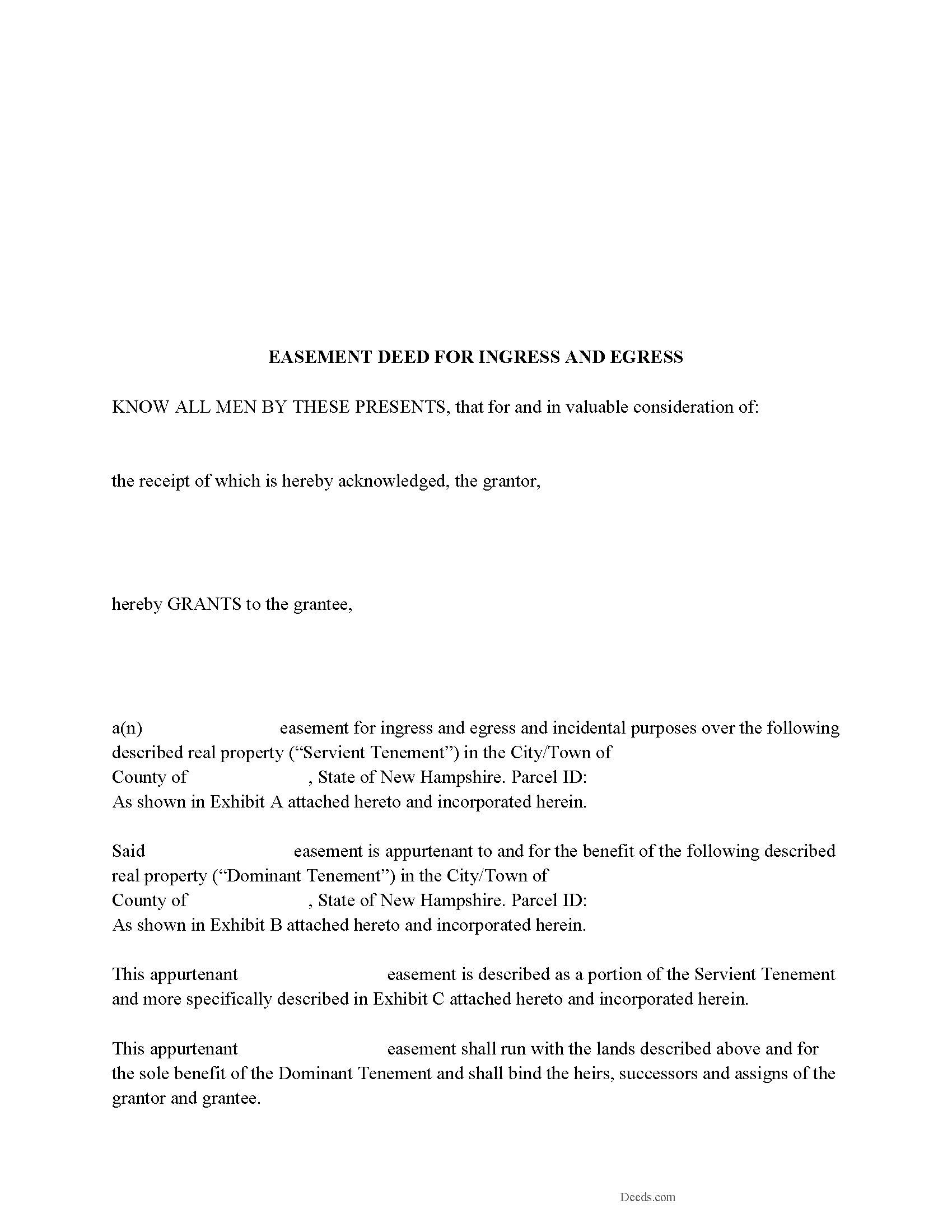New Hampshire Easement Deed Forms

New Hampshire Easement Deed Overview

How to Use This Form
- Select your county from the list on the left
- Download the county-specific form
- Fill in the required information
- Have the document notarized if required
- Record with your county recorder's office
An easement is the right to use another person's property for a specific purpose. This is a non-possessory and non-ownership interest, and the rights contained in the interest are created by an easement deed. The easement deed should specify the terms, conditions, and duration of the agreement. An easement can be made to benefit the land or to benefit an individual or legal entity. In a conveyance of real estate in New Hampshire, all easements, appurtenances, privileges, and rights belonging to the granted estate are deemed to be included in the conveyance, unless a different intention appears in the deed (477-26).
A solar skyspace easement in New Hampshire can be acquired and transferred and is recorded in the same manner as any other conveyance of an interest in real property. This easement will run with the benefitted and burdened land and will terminate upon the conditions stated in the deed (477-50). The statutory form for a solar skyspace easement is offered in 477:51 of the New Hampshire Revised Statutes.
An easement deed is an interest in real estate and should therefore be signed and acknowledged by the grantor before a justice, notary public, or commissioner before it is presented to the register of deeds for recording (477-3). Unless it is acknowledged and recorded as required, an easement deed will not be valid against any person except the grantor and his heirs (477-7). New Hampshire has adopted the Uniform Recognition of Acknowledgments Act, which means that acknowledgments can be taken in this state or in another state. A certificate of acknowledgment taken by any authorized officer will be valid if it is in the form required by law for acknowledgments taken within the state (477-5).
An easement deed should be recorded at the office of the register of deeds in the county or counties in which the real estate is located. The instrument will not be effective against bona fide purchasers for value until it is recorded (477-3a).
(New Hampshire ED Package includes form, guidelines, and completed example)
Important: County-Specific Forms
Our easement deed forms are specifically formatted for each county in New Hampshire.
After selecting your county, you'll receive forms that meet all local recording requirements, ensuring your documents will be accepted without delays or rejection fees.
How to Use This Form
- Select your county from the list above
- Download the county-specific form
- Fill in the required information
- Have the document notarized if required
- Record with your county recorder's office
Common Uses for Easement Deed
- Transfer property between family members
- Add or remove names from property titles
- Transfer property into or out of trusts
- Correct errors in previously recorded deeds
- Gift property to others